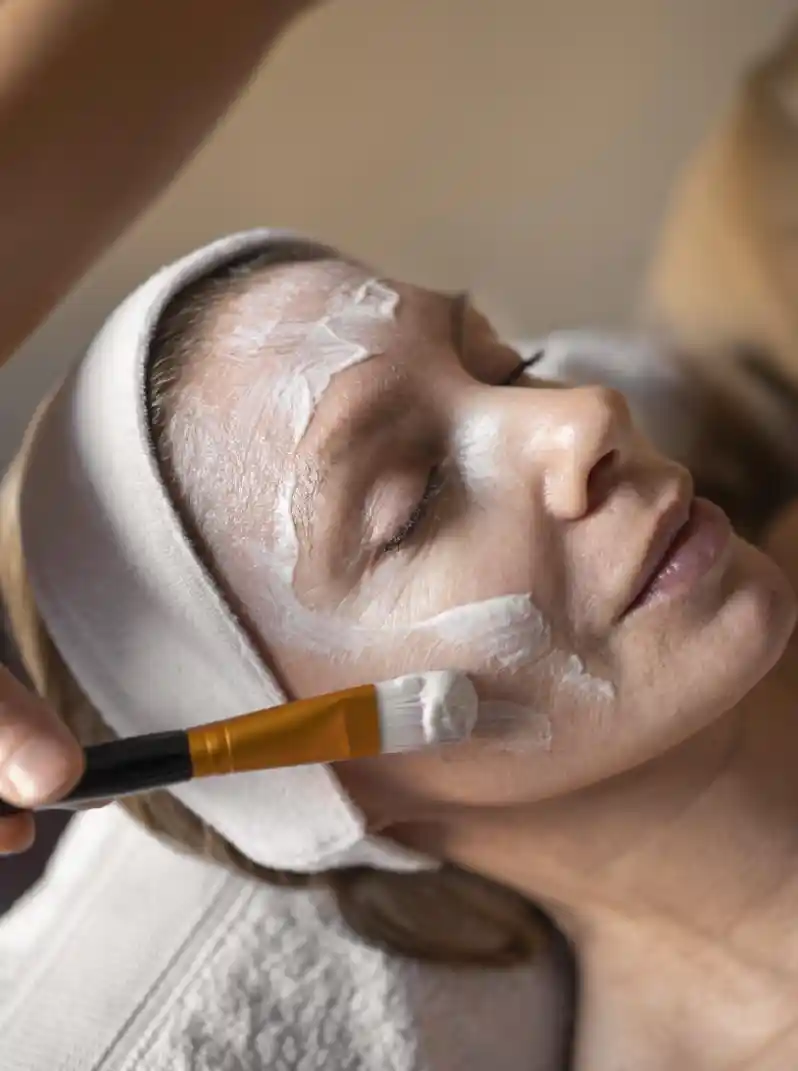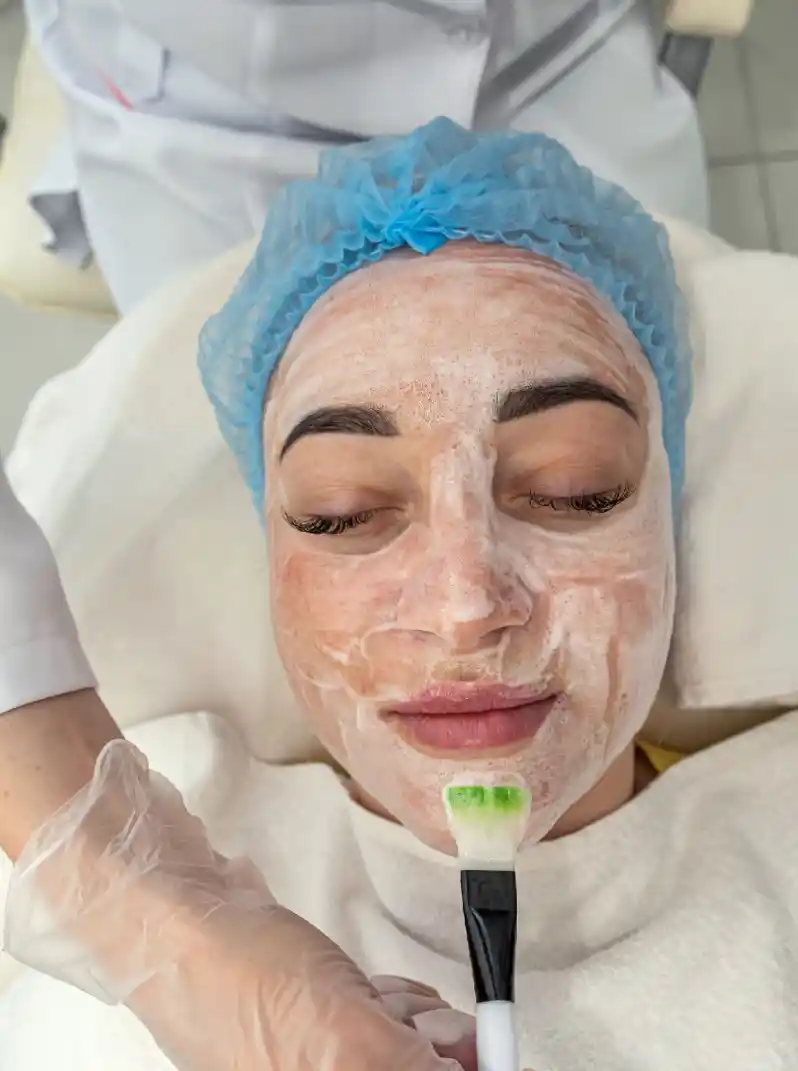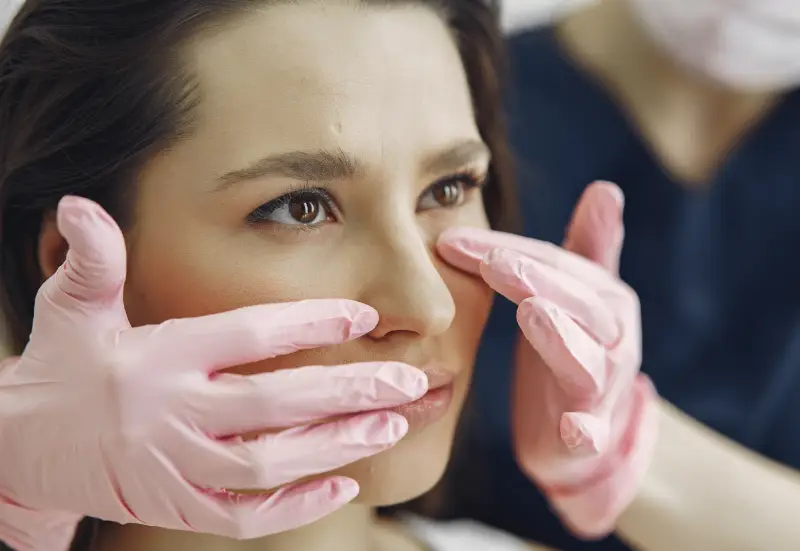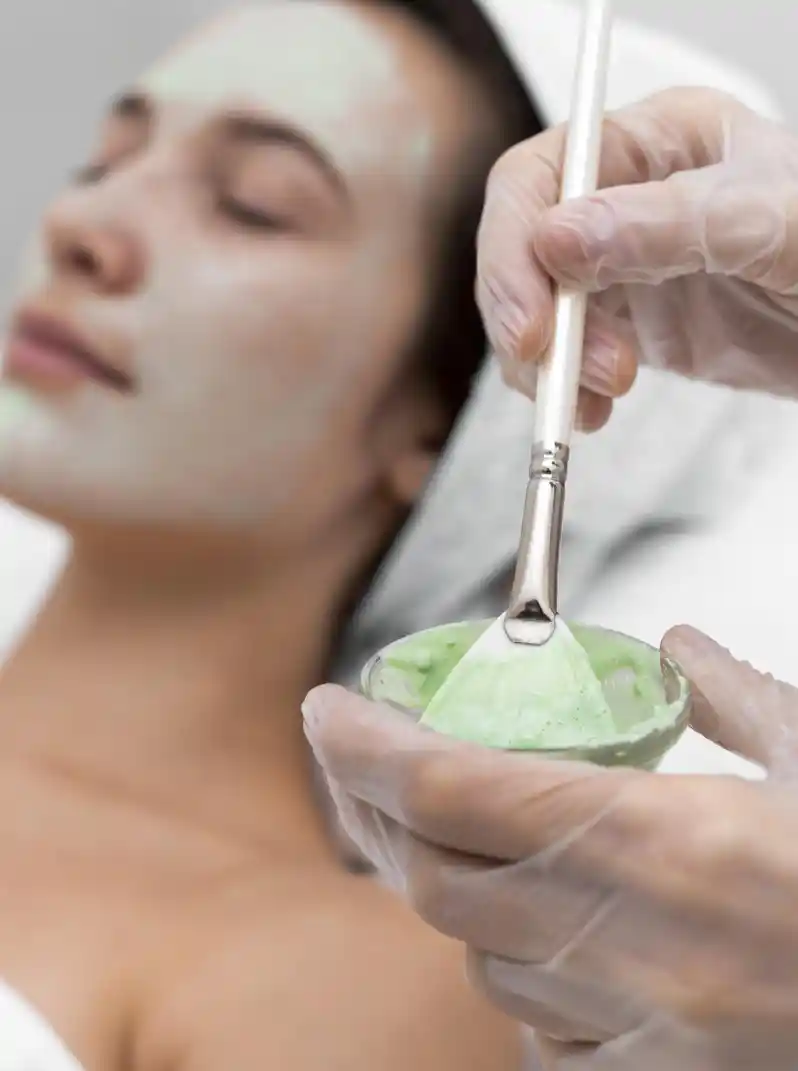Skin Health & Beauty Clinic
Acid Peeling in Bournemouth

What is Skin Acid Peeling?
Skin Acid Peeling, commonly referred to as “Chemical Peeling” or simply “Acid Peeling” is a cosmetic procedure aimed at improving the appearance and texture of the skin. It involves the application of a chemical solution to the skin, which causes exfoliation and removal of the outer layers. This process stimulates cell turnover, promotes collagen production, and reveals smoother, more rejuvenated skin underneath. Chemical peels can be categorised based on their depth: superficial, medium, or deep. They are also known by various names in the aesthetic industry, including chemical exfoliation, derma peeling, and chemical resurfacing.
How Does Chemical Peeling Work?
Chemical peeling works by applying a chemical solution to the skin, which causes controlled exfoliation of the outer layers. This solution typically contains acids such as glycolic acid, salicylic acid, or trichloroacetic acid. The acids penetrate the skin and dissolve the bonds between dead skin cells, allowing them to slough off. This process stimulates cell turnover and collagen production, leading to the regeneration of new skin cells and a smoother, more youthful appearance. The depth and intensity of the peel can be adjusted based on the specific skin concerns being addressed, ranging from superficial peels for mild exfoliation to deeper peels for more significant skin rejuvenation.


Is Skin Acid Peeling Suitable For All Skin Types?
Skin acid peeling, or chemical peeling, may not be suitable for all skin types. While it can be beneficial for many individuals, those with certain skin conditions or sensitivities may not be suitable candidates. It’s essential to consult with a qualified dermatologist or skincare professional to determine if chemical peeling is appropriate for your skin type and condition. Factors such as skin sensitivity, history of allergies, current medications, and previous skin treatments need to be considered before undergoing acid peeling. Consulting with a professional will ensure that the treatment is tailored to your specific needs and avoids any potential risks or adverse reactions.
10 Benefits of Skin Acid Peeling

FAQ
Frequently Asked
Are there any side effects or risks associated with skin acid peeling?
Side effects of skin acid peeling may include redness, swelling, itching, and temporary sensitivity to sunlight. In rare cases, more severe side effects such as scarring or infection may occur.
How many sessions of skin acid peeling are needed to see results?
The number of sessions required depends on individual skin concerns and the depth of the peel. Some people may see results after a single session, while others may require multiple sessions for optimal results.
What is the downtime associated with skin acid peeling?
The downtime varies depending on the depth of the peel. Superficial peels typically have minimal downtime, while deeper peels may require several days of recovery. It’s essential to follow post-treatment care instructions provided by our qualified clinician at Skin Health & Beauty Clinic, in Bournemouth
Can skin acid peeling be combined with other cosmetic procedures?
Yes, skin acid peeling can be combined with other cosmetic procedures such as laser treatments or injectables to enhance overall results. However, it’s essential to consult with our qualified skincare clinician at Skin Health & Beauty, in Bournemouth, to ensure compatibility and safety.
Is skin acid peeling painful?
Skin acid peeling may cause mild discomfort or tingling sensations during the procedure, but it is generally well-tolerated. Your skincare professional at Skin Health & Beauty Clinic in Bournemouth, can use techniques to minimise discomfort, such as applying a numbing cream before treatment.
What are the aftercare recommendation for Skin Chemical Peeling?
Aftercare recommendations for skin chemical peeling typically include:
-
Avoid sun exposure: Protect your skin from direct sunlight for several days following the procedure. Use a broad-spectrum sunscreen with SPF 30 or higher and wear protective clothing and a wide-brimmed hat when outdoors.
-
Moisturise: Keep your skin hydrated by applying a gentle, non-comedogenic moisturizer regularly. This helps to prevent dryness and soothe any irritation.
-
Avoid harsh products: Refrain from using harsh skincare products, such as exfoliants, retinoids, or products containing alcohol, for at least a week post-treatment. These can further irritate the skin and interfere with the healing process.
-
Gentle cleansing: Cleanse your skin gently with a mild, non-abrasive cleanser to remove dirt, oil, and makeup. Avoid scrubbing or rubbing the skin vigorously, as this can cause irritation.
-
Patience: Allow your skin time to heal naturally. Avoid picking, scratching, or peeling any flaking or scabbing that may occur, as this can lead to scarring or infection.
-
Stay hydrated: Drink plenty of water to hydrate your skin from the inside out. Proper hydration supports the skin’s healing process and helps maintain its elasticity and suppleness.
-
Follow post-treatment instructions: Adhere to any specific post-treatment instructions provided by our qualified clinician at Skin Health & Beauty Clinic in Bournemouth. These may include avoiding certain activities or using specialised skincare products to optimise results and minimise side effects.
-
Schedule follow-up appointments: Keep any scheduled follow-up appointments with our qualified clinician at Skin Health & Beauty Clinic in Bournemouth to monitor your skin’s progress and address any concerns or questions you may have.
sKIN HEALTH & BEAUTY CLINIC & ACADEMY ADDRESS
Find our Clinic
Opening Times
| Day | Hours |
|---|---|
| Monday | 10:00 - 14:00 16:00 - 20:00 |
| Tuesday | 10:00 - 16:00 |
| Wednesday | 10:00 - 14:00 16:00 - 20:00 |
| Thursday | 10:00 - 14:00 16:00 - 20:00 |
| Friday | 9:30 - 14:00 16:00 - 20:00 |
| Saturday | 10:00 - 17:00 |
| Sunday | 10:00 - 12:00 |
Clinic Address
878, Christchurch road, Bournemouth BH76DJ
Telephone
07393 770773
Finding us
Our clinic is located on the left hand side of Christchurch Road a few meters away from Kwik Fit towards Iford roundabout, just at the Hannington Road Bus Stop. There is plenty of transport link to Bournemouth, Poole and Chirstchurch all day and free parking outside the clinic for an hour and in the side roads unlimited.
